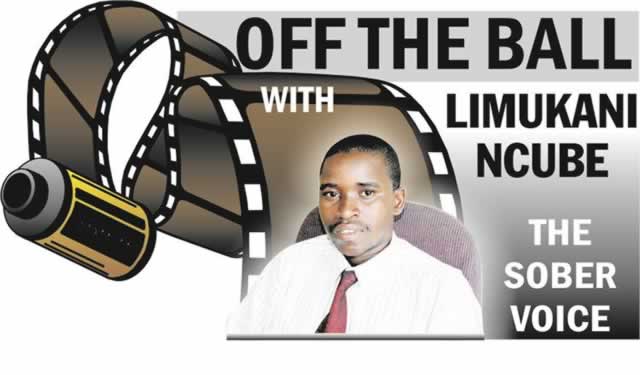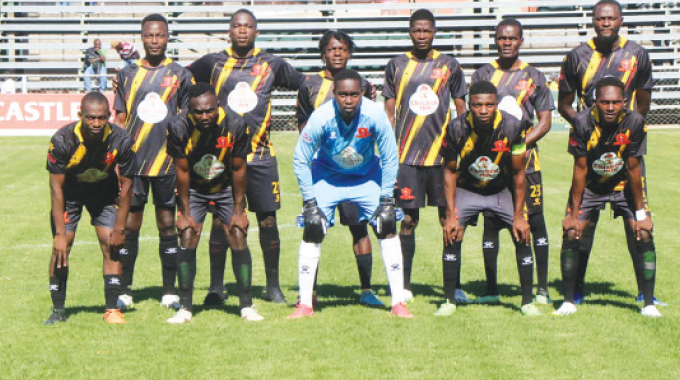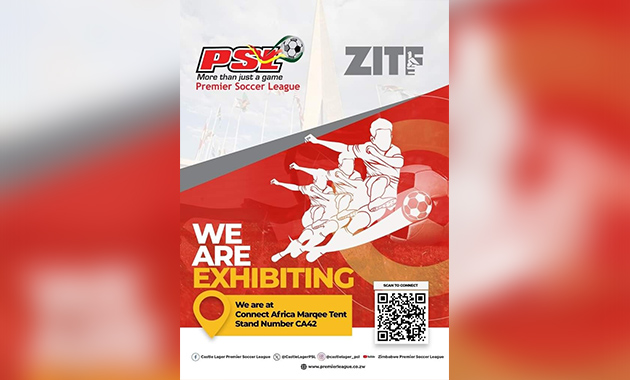Shortcuts are recipe for disaster

 SOME of the greatest football coaches the world has ever seen never made it as players. A little research will show that managers like Arsene Wenger and Jose Mourinho did not have any great playing careers, although they played some bit of professional football.
SOME of the greatest football coaches the world has ever seen never made it as players. A little research will show that managers like Arsene Wenger and Jose Mourinho did not have any great playing careers, although they played some bit of professional football.
However, former Chelsea manager Andre Villas-Boas, by comparison, came nowhere near playing the game professionally and had no senior playing career to speak of. He is not the only top flight coach whose ‘playing days’ appear to be restricted to a few youth games and a park kick- about.
One of the legends of the beautiful game in Brazil, Carlos Alberto Parreira, who went on to win the World Cup in 1994 never played professional football, or any competitive football for that matter. “I started out as a fitness coach,” explains Parreira. “But there reached a point in my life where I was so well qualified that I was almost pushed into taking on a head coach’s role. In Kuwait they asked me to take charge of their youth sides and that was the start of a long career.” Another top achiever is Avram Grant who had stints with Chelsea, Portsmouth and Westham in England and in other countries.
Why am I boring you with such detail? It is because I have heard a lot of people arguing that Highlanders were collapsing because it is believed that acting head coach Mark Mathe never made it as a player.
We hear some weird claims that some players even talk among themselves that “walidlala ngaphi” (where did he play), which is just nonsensical because playing football and coaching football are two different things. Of course, former players will tell you that they make the best coaches because they know the “ins and outs” of the game and how to deal with players and fans, but that is just a fallacy.
Not all former players who became coaches made it and I would not want to bore you to death with their names, but of course, we know some who did not play the game competitively and later on became good coaches, talk of Charles Mhlauri; while there remains a click of former players like Rahman Gumbo, Madinda Ndlovu, Kalisto Pasuwa, Biggie Zuze, Masimba Dinyero, Nation Dube and Norman Mapeza who played the game at the highest level and are doing well as coaches.
The biggest story of the week has been the free fall of Highlanders, who finished the month of October without winning a single game. No one ever imagined that a big club like Highlanders can go for five matches without a single win, and what is worrying is that no one seems to be having a clue of what has to be done. What we get is mere gossip and finger pointing, but I believe the real culprits in this whole mess are the players. Admittedly, there are other enablers that make players deliver positive results, but the onus is on them to keep the club alive come rain come thunder, unless they are mercenaries who do not deserve to play for the club.
I have heard sentiments that the executive has failed. Granted, as leaders of the club they will always come under fire when things go wrong and I would not blame anyone for arguing that chairman Peter Dube has lost the plot, neither will I blame anyone for saying Mathe as the acting coach has lost both his compass and raincoat, or umbrella if you like. But I still believe Dube deserves credit for bringing back normalcy and good days to the club in the past two years when there was relative peace and harmony among players and members.
I certainly do not believe he is a bad administrator but I remain cognisant of the fact that football people easily forget. In fact, they are quick to blame and equally quick to forgive, and that is what players must know. So what they need to do is just to win one game and all their sins will be forgiven, so to speak.
While there could be issues to do with the technical set up, I believe players must carry the cross because they are professionals whose job is to play football. They are different from yester-year footballers who would wake up in the morning and go to work elsewhere and then come for training after 5PM. These guys do nothing apart from playing football and they are paid reasonably and I find it difficult to understand why they are not fighting on the field of play. Someone said they are over paid that is why they are not worried about winning bonuses, but my instinct is that even a millionaire does not sleep, but will be strategising where to get the next dollar.
The dying stages of the match against Chicken Inn, which they of course lost, were better compared to their previous performances and what has been raised by most neutrals is that the team generally lacks fitness, and that is where the technical team comes in. That argument is premised on the fact that for the first 20 minutes, Highlanders generally play well, but thereafter collapse as they fail to keep their character. Perhaps that is compounded by the fact that the club bought too many players who never had the time to gel before the season kicked off, and some of the new players have their own issues to do with discipline, a factor which can make or destroy a player. To add to the confusion, the social media has not spared the club as there are many people with different prescriptions, some with purely negative contributions and if the club leadership is following what is said on social media, then the confusion will go on.
Nonetheless, there is a school of thought that Highlanders has to change is operational approach altogether. The idea of buying ready talent has not helped the club, as the big names bought in the past two years have only given the club a second finish. And the tragedy of it is that the club is stuck with the whole lot of players as more than 20 players in the squad have contracts running up to the end of 2015, so they cannot disband the squad. But there is need to start building a team for the future around players who understand what it means to play for Highlanders and do away with players who are literally looking for money.
Of course, football is now an industry and footballers have to make a living from the game, but the club must build its own resource base with players who understand the club culture, goals and identity and only go out to look for brilliant talent that is not in their structures if need arises. There are no short-cuts in this business and by now, Highlanders should know better.
Zimbabwe Saints tried short cuts numerous times and came back to the Premiership but it all ended in disaster, and Highlanders should learn from that. At least they are lucky they still have their multitudes of fans by their side, and they do not have internal fights over the control of the club, and there is BancABC to chip in with a handsome sponsorship package.
Perhaps instead of having the likes of Cosmas “Tsano” Zulu working with the senior team, such grey hairs should be assigned to revamp junior structures so that Highlanders can start to produce another crop of greats like the Madinda Ndlovus and Willard Khumalos, another crop like the Thulani Ncubes and Siza Khozas of this world. However, what is happening now is not new at the club. When the crop of legends like Douglas Mloyi had run their distance, the club went through a rough patch until the crop of the likes of Khumalo came in.
A similar season came when that crop of players had run its distance too, but by then, the club had its own in-house relief and self sustenance mechanisms, which are glaringly lacking now. The structures, from the board to the person cleaning at the clubhouse, should also be united in purpose. There should never be a point where the board is turning left and the executive and its Chief Executive turning right. Like chairman Dube rightly put it, the club is in crisis but the only people who can get the club out of this mess are the players. They are the ones who play, the buck stops with them. And they have no choice but to deliver.
For comments and contributions email [email protected]. You can follow this writer on twitter and facebook.










Comments